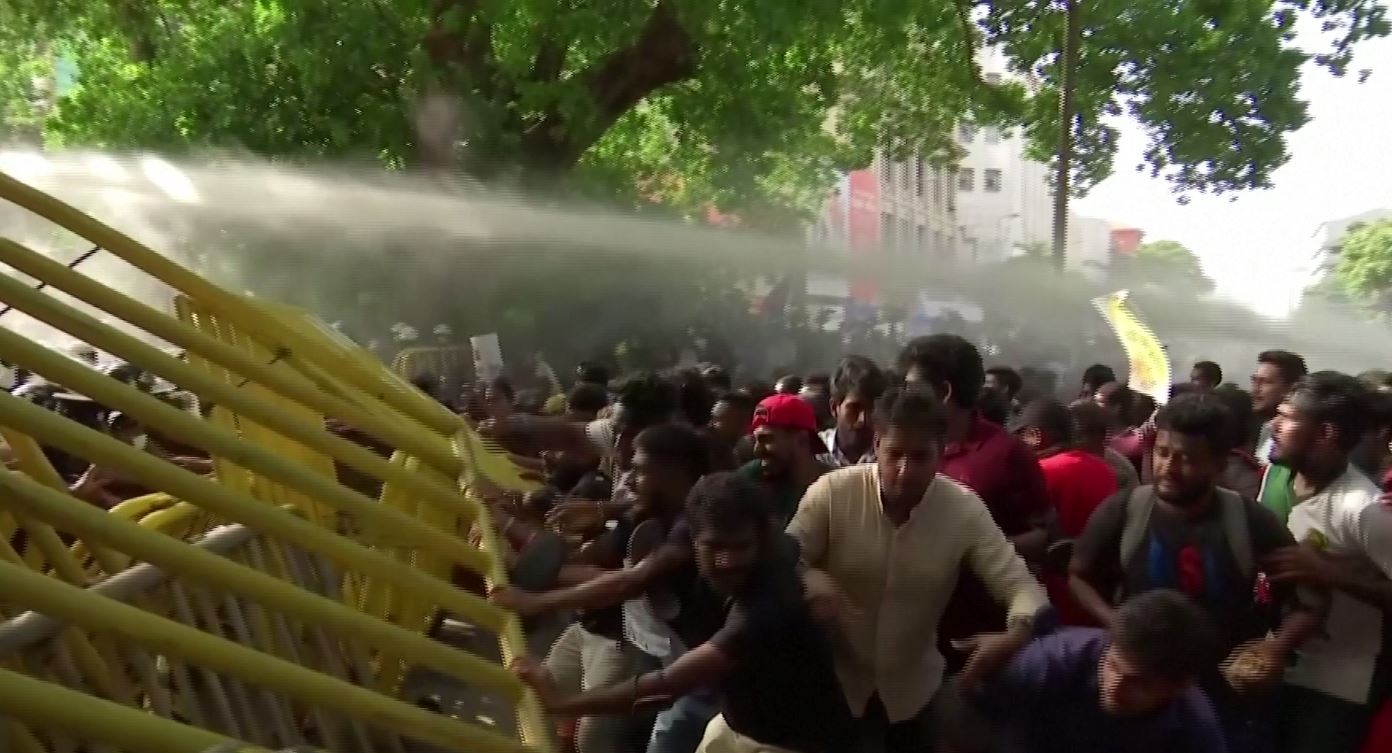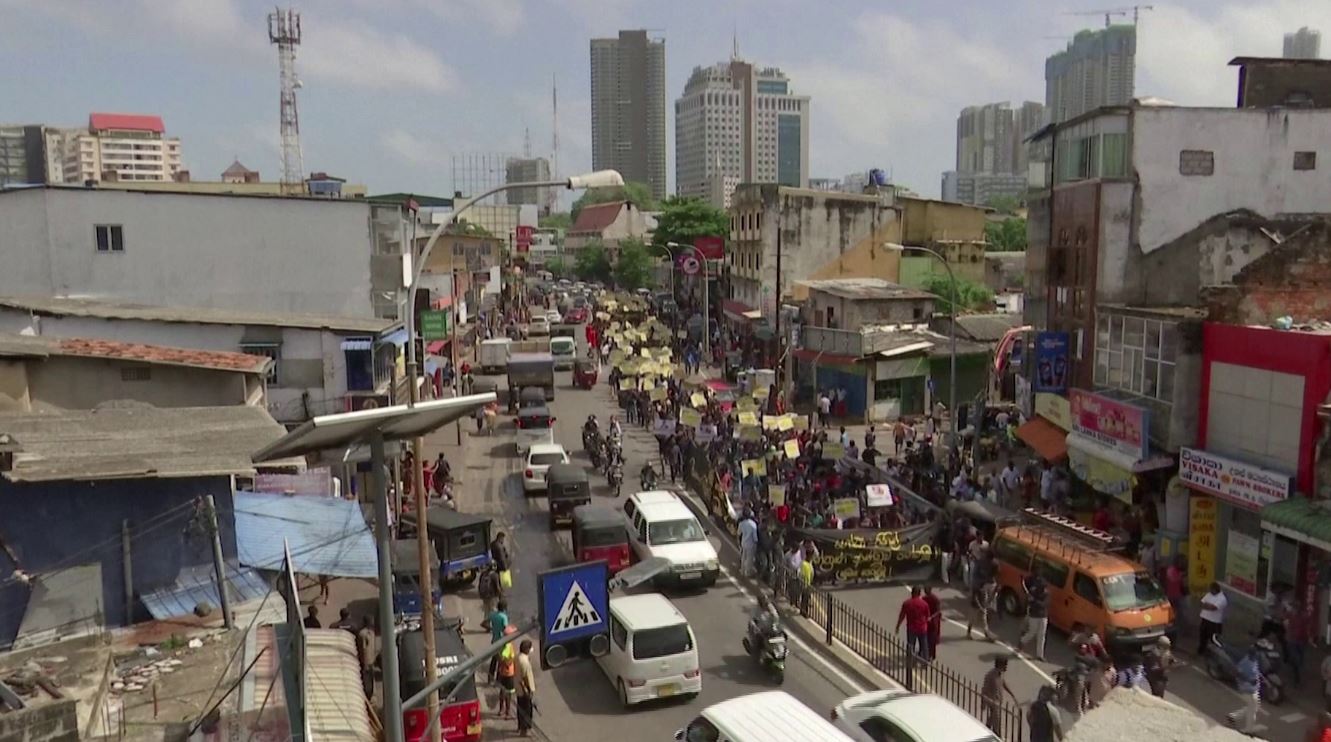INTERNATIONAL: Sri Lanka had been earmarked for sovereign default, as the remaining foreign exchange reserves of US$1.9 billion as of March 2022 would not be sufficient to pay the country's foreign debt obligations for 2022, with US$4 billion to be repaid.
Sri Lanka's documented history goes back 3,000 years.
Its geographic location and deep harbours has made it of great strategic importance, from the earliest days of the ancient Silk Road trade route to today's so-called maritime Silk Road. Because its location made it a major trading hub. The country's trade in luxury goods and spices attracted traders of many nations, which helped to create Sri Lanka's diverse population.
The Portuguese arrived in Sri Lanka (largely by accident) and then sought to control the island's maritime regions and its lucrative external trade. After the Sinhalese-Portuguese war, the Dutch and the Kingdom of Kandy took control of those areas. The Dutch possessions were then taken by the British, who later extended their control over the whole island, colonising it from 1815 to 1948. Independence arose in the early 20th century, and in 1948.
The dominion was succeeded by the republic named Sri Lanka in 1972. Sri Lanka's more recent history was marred by a 26-year civil war, which began in 1983 and ended decisively in 2009, when the Sri Lanka Armed Forces defeated the Liberation Tigers of Tamil Eelam.
The 2004 Asian tsunami killed over 30,000 and displaced over 500,000 people. During the 26 years of conflict of the civil war between Sri Lankan government and the Tamil Tigers, between 60,000 and 100,000 people were killed. Many years of
The Sri Lankan economic crisis is an ongoing crisis in the island nation of Sri Lanka that started in 2019. It is the country's worst economic crisis since its independence in 1948. It has led to unprecedented levels of inflation, near-depletion of foreign exchange reserves, shortages of medical supplies and an increase in prices of basic commodities. The crisis is said to have begun due to multiple compounding factors like tax cuts, money creation, a nationwide policy to shift to organic or biological farming and events such as the Easter bombings in 2019, and the impact of the COVID-19 pandemic. The subsequent economic hardships resulted in the 2022 Sri Lankan protests.
In April 2022, the Sri Lankan government announced that it was defaulting, making it the first sovereign default in Sri Lankan history since its independence in 1948 and the first state in Asia-Pacific region to enter sovereign default in the 21st century.
Since 2010, Sri Lanka's foreign debt more than doubled between 2010 and 2020. While foreign debt was about 42% of the GDP in 2019, it rose to 119% of its GDP in 2021. By the end of 2022, the country is due to pay US$4 billion to debtors, whereas in April 2022, government reserves amounted for US$2.3 billion.
In April 2021, President Gotabaya Rajapaksa announced that Sri Lanka will only allow organic farming totally banning inorganic fertilizers and agrochemicals-based fertilizers. The drop in tea production as a result of the fertilizer ban alone resulted in economic losses of around $425 million and created a 20% drop in rice production.
The repercussions of the ongoing tense situation between Ukraine and Russia due to the Russian-Ukrainian War are felt in the already sluggish economic conditions of Sri Lanka.
In 2021, the Sri Lankan Government officially declared the worst economic crisis in the country in 73 years. In August 2021, a food emergency was declared. However the government denied food shortages.
On May 9, Sri Lankan Prime Minister Mahinda Rajapaksa resigned from his position after protests on the country's economic crisis turned violent. According to a statement given by his office, he resigned from his position to help form an interim, unity government that can help ease recent protests over the shortage of fuel and other essential imported goods.
On 16 May 2022 the newly appointed Prime Minister Ranil Wickremesinghe revealed that the government has no usable dollar reserves and even finding a million dollars was a challenge.
The country’s prime minister has warned of a food shortage as the island nation faces a devastating economic crisis and vowed the government will buy enough fertilizer for the next planting season to boost harvests.
"Mainly for children, it is milk powder, and for even adults are affected with lack of milk powder, fuel, so many things -- rice. Everything has gone up, prices have sky rocketed," said a local resident who gave her name as Nilangini.
Nearby, a long queue had formed in front of shop selling cooking gas cylinders, the prices of which have soared to nearly 5,000 rupees ($14) from 2,675 rupees in April.
"So, without gas, we can’t do anything. Without kerosene oil, we can’t do anything. So last thing we have to go to... is die. Next month you can see, Sri Lankan people, without food, lot of people (will) die,” said a Mohammad Shazly, a part-time chauffeur in the queue for the third day in the hope of cooking for his family of five.
Today police are using tear gas and water cannons against students who have been protesting, for a better future, food, fuel, and to bring Sri Lanka back to prosperity.
PHOTO: POLICE USING WATER CANNON, TEAR GAS ON PROTESTING STUDENTS/ PROTESTING STUDENTS THROWING BACK TEAR GAS SHELLS ON POLICE/PEOPLE RUNNING/ PROTESTERS ARGUING WITH POLICE/ SOUNDBITE OF A PROTESTER/ STUDENTS MARCHING THROUGH COLOMBO























